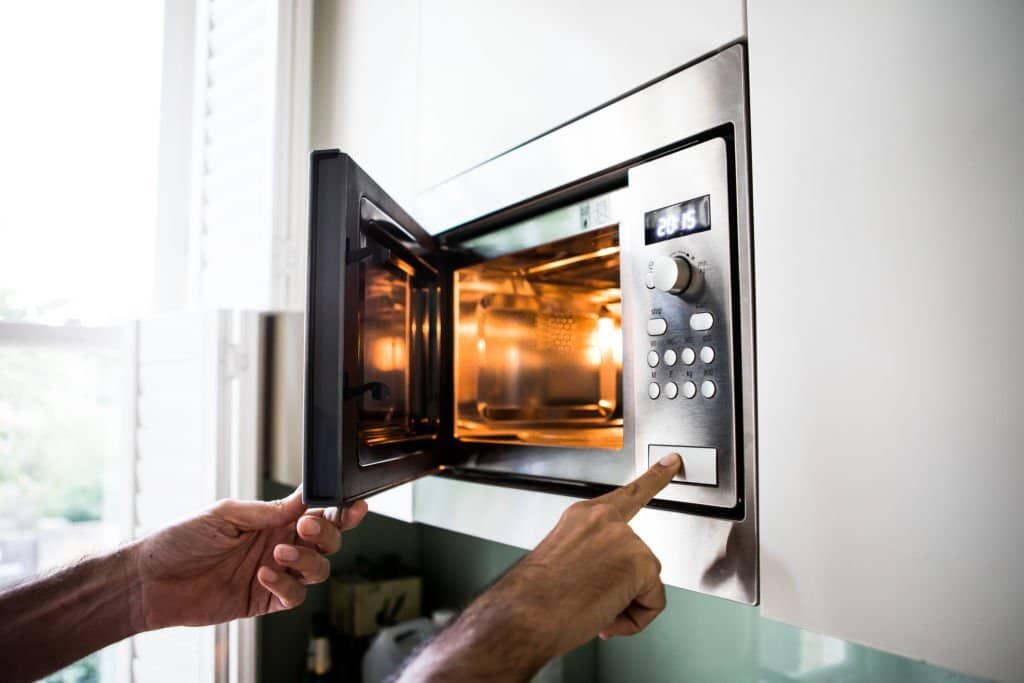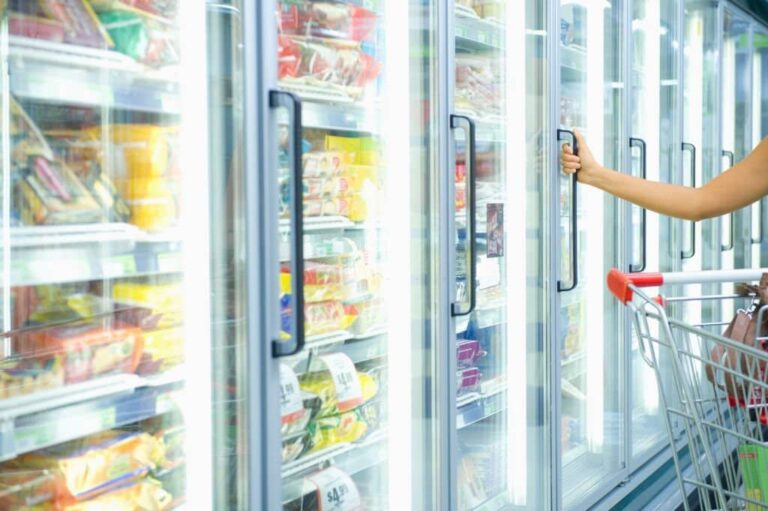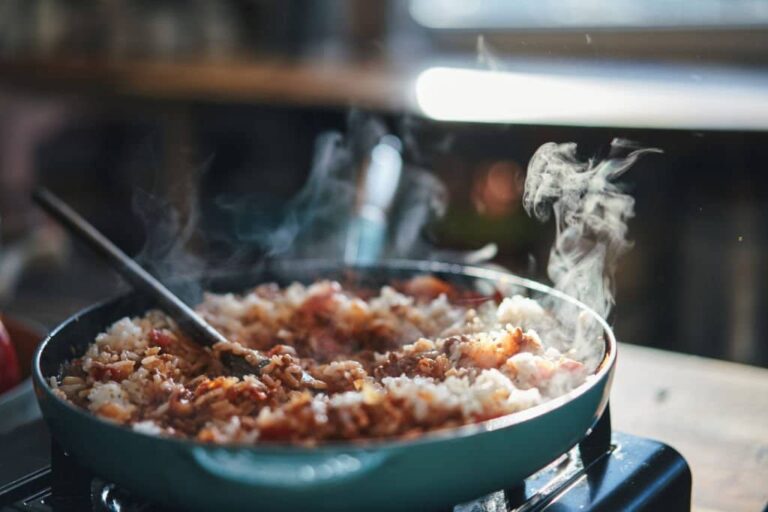We all love how easy it is to save leftover food and eat it later.
It saves time, cuts down on waste, and lets us eat quickly when we’re busy. But many people think that reheating frozen food is safe and good for you.
In this article, we’ll talk about why you shouldn’t reheat frozen food and should instead choose fresher foods.
The Perils of Reheating Frozen Food

Nutrient Loss
When you reheat frozen food, it goes through a process called thermal degradation.
This process breaks down vitamins, minerals, and other important nutrients.
For example, vitamin C, a very important antioxidant, is very sensitive to heat and can be easily destroyed when food is reheated.
Because of this, the food loses a lot of its nutritional value, depriving your body of things it needs.
Formation of Harmful Substances
When you reheat frozen food, chemicals like acrylamide and heterocyclic amines can form that are bad for your health.
When starchy foods like potatoes are cooked at high temperatures, a chemical called acrylamide is made. This chemical could cause cancer.
When you reheat meat, fish, or poultry, you also make heterocyclic amines, which have been linked to an increased risk of cancer.
Loss of Texture and Flavor
When frozen food is reheated, it often loses its texture and flavor. When food is frozen and then thawed, ice crystals form, which can damage the structure of the food’s cells.
When these damaged cells are heated again, they leak water, making the texture soggy and not very tasty.
Also, the process of reheating can cause the Maillard reaction, which can change the taste in an unpleasant way.
Bacterial Growth
Bacteria do not die when they are frozen, but their growth is slowed down.
When you reheat frozen food, the temperature in the middle of the dish might not rise high enough to kill harmful bacteria.
This can make you sick, especially if the food isn’t heated all the way through and evenly.
The Safer Alternatives

To avoid the risks of reheating frozen food, you could try one of these safer options:
Fresh Meals
Try to make fresh meals that you can eat right away instead of relying on frozen leftovers.
Fresh ingredients not only make food taste and feel better, but they also keep all of their nutrients.
Refrigeration
If you have food left over, it’s better to keep it in the fridge than in the freezer.
Refrigeration slows the growth of bacteria without losing nutrients or making harmful substances, which can happen when food is frozen and thawed.
Portion Control
To waste less food, watch how much you serve when you cook. Cook only what you need for one meal, and if you have leftovers, try to eat them within a day or two.
Safe Thawing
If you do need to use frozen food, do it safely by putting it in the fridge or using the defrost setting on your microwave. If you let something thaw at room temperature, bacteria can grow.
Conclusion
Freezing food is a good way to keep leftovers for later, but reheating frozen food can be dangerous to your health and ruin the taste of your meal.
To make sure you eat something healthy and safe, choose fresher options, store leftovers in the fridge, and use safe ways to thaw food.
This will not only make your food taste better, but it will also protect your health.
Related Post:
FAQs
1. Can I reheat frozen food if I use a microwave?
While microwaving can help evenly heat frozen food, it may not always reach temperatures high enough to kill harmful bacteria. It’s best to follow safe thawing and reheating practices to avoid potential risks.
2. What is the best way to thaw frozen food?
The safest ways to thaw frozen food are in the refrigerator or using the defrost setting on your microwave. Thawing at room temperature can promote bacterial growth.
3. Are there any frozen foods that are safe to eat after reheating?
Some frozen foods, like pre-cooked frozen meals specifically labeled as “microwavable,” may be safe to eat after reheating. However, it’s essential to follow the manufacturer’s instructions carefully.
4. Can I refreeze thawed frozen food?
It is not recommended to refreeze thawed frozen food. Once it has thawed, harmful bacteria can multiply, making it unsafe to refreeze.
5. What can I do with leftover frozen food instead of reheating?
Instead of reheating leftover frozen food, consider using it as an ingredient in a new recipe or repurposing it creatively to reduce waste.



